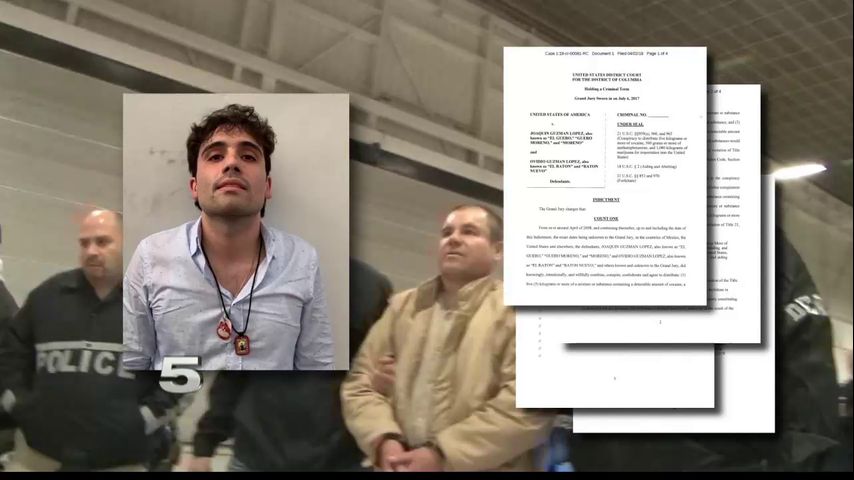El Chapo's Son Release; Effect on U.S. Extraditions
WESLACO – Confidence in Mexico's rule of law is faltering following the release of Joaquin "El Chapo" Guzman Loera's son, Ovidio Guzman Lopez.
It's raising questions about the U.S. partnership with Mexico on extraditions.
Ovidio Guzman Lopez remains free. As one of the three managers of his father's cartel, many ask whether his freedom will ask.
During Monday's press conference, a reporter asked the president, "Are they going to arrest Mr. Ovidio?”
Mexican President Andres Manuel Lopez Obrador responded, "If there are orders for his arrest, yes, and if there's an order for extradition." He added as a condition, "As long as we're not putting the population at risk."
The U.S. wants the father and son. Both are named in a federal indictment on drug trafficking charges. Only Joaquin 'El Chapo' Guzman Loera was extradited.
Mexico's president said the incident at Culiacan was the attempt to extradite him – a common process that can take weeks or even years to complete.
The initial capture requires careful planning, explained Arturo Fontes, a former FBI agent and current founder of Fontes International Solutions.
"I've worked in Guadalajara 2011 to 2013, and we had several operations targeting Cartel de Jalisco. When we had these operations where we wanted to nab these people, we would have blockades, buses on fire, and incidents like that. But we would, coordinating with the Mexican police, we always had the proper staffing of people, we had the logistics, the intelligence, we had the air support," says Fontes.
Thursday's operation lacked that coordination. As a consequence, the city fell into the hands of the cartel forcing the administration to release their leader.
"This is a very ominous sign," Congressman Filemon Vela of District 34 said of the incident.
Congressman Vela says this failed capture breaks the pattern the U.S. has come to expect from Mexico.
"Frankly, this incident has caught us off guard, because from the standpoint of apprehension of cartel figures, that's one area that there's been a pretty good degree of success in the last two to three years," Congressman Vela says.
Vela calls Culiacan's incident a "red flag" he'll be tracking.
"We're going to have to take a second look at it to make sure that the Mexican government is in a position where they can respond in the right way when these kinds of situations occur," he says.
This will be a pressing issue when he meets with the Ambassador of Mexico to the U.S., Martha Barceña, later this week.
Fontes explained extraditions can be quickly executed when the criminal signs an agreement allowing him to be sent to the U.S.
In El Chapo's case, he fought the process effectively delaying it for months, but the delays can extend for years. Those delay tactics could be repeated if and when his son is caught, too.




